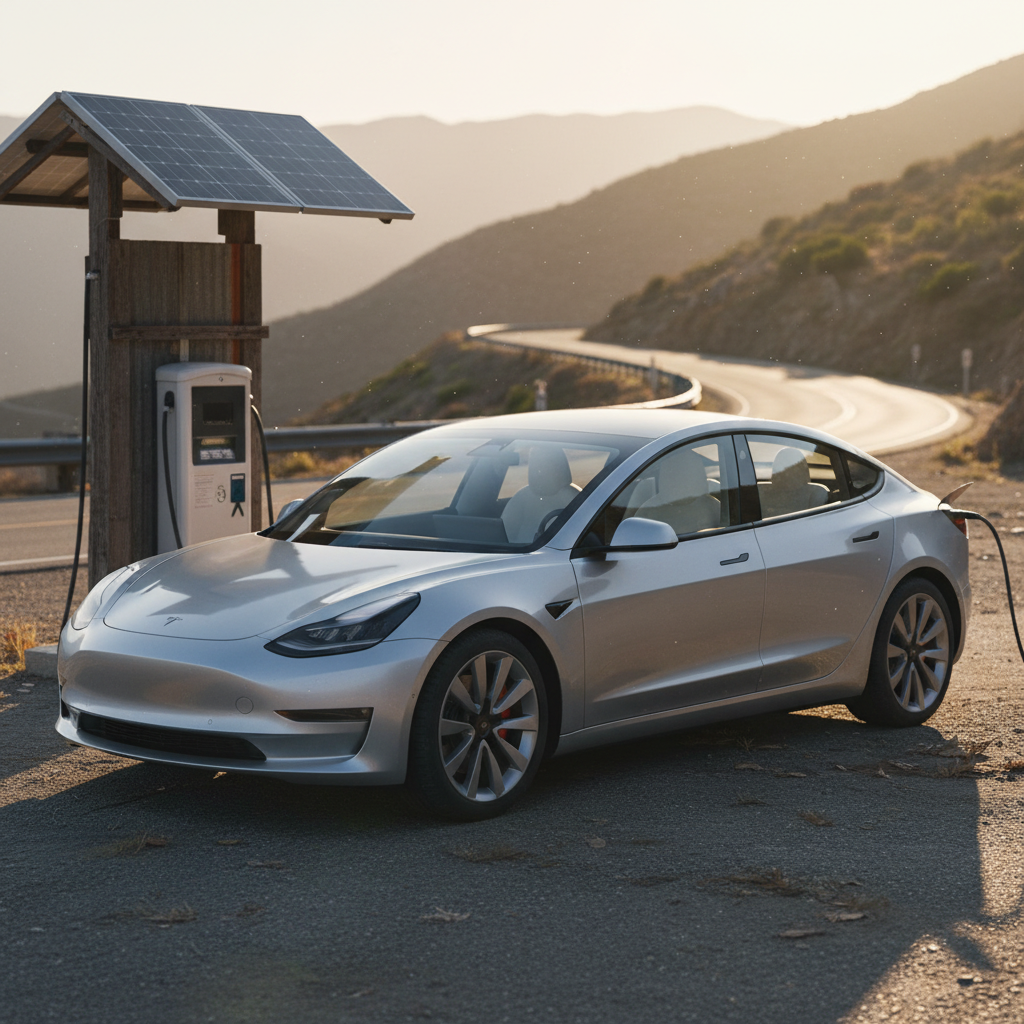If you drive a 2018 Nissan Leaf, the battery is the whole ballgame. By 2025, many early 40 kWh packs are showing real degradation, and owners are starting to ask a hard question: what does a 2018 Nissan Leaf battery replacement cost, and is it actually worth doing?
Quick answer
2018 Nissan Leaf battery replacement cost overview
2018 Leaf 40 kWh battery: typical 2025 cost ranges
For a 2018 Leaf in the U.S., you’re almost certainly dealing with the 40 kWh ZE1 pack. That’s the standard battery for this model year. In 2025, mainstream estimates and shop quotes put a new or remanufactured 40 kWh pack in roughly the $6,500–$7,500 range at retail, before tax. That lines up with owner invoices showing the pack itself around $4,700–$5,200 when billed through Nissan plus several hundred dollars of labor, and with broader EV‑battery benchmarks that peg Leaf replacements at a premium over their relatively low vehicle price.
Independent EV shops and importers can sometimes beat that number. A healthy used 40 kWh pack, or an aftermarket replacement built from new cells, might land around $4,000–$6,000 installed, depending on supply, warranty, and whether they’re upgrading older Leafs or simply swapping like‑for‑like. Go for a higher‑capacity 50 or 62 kWh upgrade, and you’re usually looking at a five‑figure project once you add parts, shipping, and labor.
Expect big regional swings
Parts vs labor: what actually makes up the bill
1. Battery pack price (the big number)
The high‑voltage pack is most of your bill. For a 2018 Leaf’s 40 kWh battery, real‑world numbers look like this in 2025:
- $4,700–$5,500 – typical dealer part cost shown on warranty invoices for a 40 kWh pack.
- $6,500–$7,500 – what many retail customers are quoted for a full pack through the dealer parts counter.
- $3,500–$5,000 – rough range for good used or refurbished packs sourced from salvage, plus a shop’s markup.
The spread reflects whether the pack is new, remanufactured, or used, and how aggressive the markup is.
2. Labor, shop fees & extras
Swapping a Leaf battery isn’t technically exotic, but it is heavy, high‑voltage work that many general repair shops won’t touch. Typical line items:
- $300–$1,200 in labor, depending on hourly rate and whether diagnostics and software updates are included.
- $100–$400 for shop supplies, HV safety checks, and disposal or shipping of the old pack.
- $0–$300 for optional services (alignment check, 12V battery replacement, etc.).
On a clean job, the car may only be down for a day or two once the pack is on-site. The real wait is often parts availability.
Ask for an itemized estimate

When Nissan pays: 2018 Leaf battery warranty explained
Before you price out a battery replacement, make absolutely sure your 2018 Leaf isn’t still covered. In the U.S., 2018 Leafs shipped with two overlapping battery warranties:
- Capacity warranty: 8 years/100,000 miles against excessive capacity loss (dropping below 9 of 12 bars on the dash gauge).
- Defects warranty: coverage for defects in materials or workmanship in the lithium‑ion pack, typically aligned with the EV component warranty (often 8 years/100,000 miles in the U.S., but shorter in some other regions).
The nuance is that capacity loss and outright failure aren’t always treated the same way. U.S. owners who hit 8 bars or less within the warranty window have routinely had 40 kWh packs replaced at no charge, with paperwork showing that ~$5,000 battery and a few hundred dollars of labor that Nissan absorbs. In Europe, there are more stories of disputes where automakers argue that certain failures fall outside capacity coverage and into shorter component warranties.
Don’t assume you’re out of luck
Quick steps to check your 2018 Leaf’s battery warranty
1. Read the capacity bars
Turn the car on and look at the right‑side battery capacity gauge, not the charge level. If you’re at 8 bars or fewer, you may qualify for a capacity‑loss replacement if still within the time/mileage limits.
2. Confirm in‑service date
Your 8‑year window starts from when the car first went into service, not necessarily the model year. A late‑sold 2018 Leaf might have an in‑service date in 2019 or even 2020.
3. Verify mileage
Note the odometer. U.S. capacity coverage typically ends at 100,000 miles. Being under the time limit but over the mileage limit, or vice versa, can end your eligibility.
4. Scan for trouble codes
If the car won’t ready up or throws EV‑system warnings, a dealer can pull high‑voltage fault codes that help determine if a defect warranty may apply.
5. Get a written dealer diagnosis
Ask the Nissan dealer to document their findings and whether they’re submitting a warranty claim. That paperwork matters if you need to escalate.
How to know if your 2018 Leaf battery really needs replacing
Common signs your 2018 Leaf battery is at the end of the road
Some issues point to replacement; others can be managed.
Severe range loss
If your real‑world range has dropped into the 50–70 mile window on a full charge, the pack is heavily degraded. For many owners, that’s below what’s usable for daily driving.
Warning lights & shutdowns
EV‑system errors, sudden drops in state of charge, or the car refusing to ready up can signal failing modules, isolation faults, or other safety‑critical issues.
Charging problems
Refusing fast charge, unusually slow DC charging, or big jumps in state of charge while plugged in can point to unhealthy cells that may justify pack replacement.
Not every frustrating battery moment means you need to spend five figures. Hot‑weather range loss, cold‑weather performance dips, or a couple of missing bars on the gauge are normal aging for a 2018 pack. Replacement becomes more compelling when range falls below your daily needs, the pack throws repeat high‑voltage faults, or Nissan declares the pack unsafe to repair at the module level.
Rule of thumb: match range to routine
Replace, repair, or sell? Making the math work
Option 1: Replace the pack
This is the path if you love the car, it’s in great shape otherwise, and you need to keep an EV in the driveway.
- Pros: Restores range, extends life 5–10+ years, keeps a car you know.
- Cons: $6,000–$9,000 is often close to, or even above, the market value of a 2018 Leaf with a weak battery.
Financially, this makes the most sense when you can secure a lower‑cost specialist install, or when the car is otherwise nearly new in terms of miles and condition.
Option 2: Repair modules or go used
Some EV specialists offer module‑level repairs for a few bad cells, or will swap in a used pack with decent health.
- Pros: Can cut the bill to roughly $2,000–$5,000 depending on scope; good if you just need a few more years.
- Cons: Shorter warranty, more variability in pack history, and not every failure can be cured this way.
If your Leaf still has most of its capacity and a specific defect is identified, repair or used-pack replacement can be a reasonable middle ground.
Option 3: Sell or trade the car
Battery replacement vs selling your 2018 Leaf: simplified comparison
Numbers will vary by market, but this gives you a realistic way to think about the decision.
| Scenario | Upfront cost | 2018 Leaf value after | Net position in 12 months* | Risk profile |
|---|---|---|---|---|
| Replace with new pack | $7,500 (pack + labor) | $9,000–$11,000 (good battery, average miles) | You’ve effectively sunk most of the pack cost into the car; resale may not fully reflect the upgrade. | Low technical risk if work is warrantied; high financial concentration in an older EV. |
| Repair or used pack | $3,500 | $7,000–$9,000 | Lower cash outlay for a few more years of service. | Moderate technical risk depending on pack source; moderate financial risk. |
| Sell as‑is and buy different used EV | $0 for the Leaf, apply sale value to your next car | $0 (you no longer own the Leaf) | You redirect cash into a newer EV or one with better range instead of into an old pack. | Lower technical risk if you buy with a documented battery report; spreads risk into a different vehicle. |
Comparing a $7,500 pack replacement to selling and buying another used EV.
*The net position line isn’t about precise resale math, it’s about where your money and risk live. Sinking thousands into a single 7‑year‑old EV can make sense for some households, but plenty of owners are better served by exiting before writing that check.

How Recharged can help if your Leaf battery is tired
If you’re staring at a $7,000 battery estimate on a 2018 Leaf, taking a step back is smart. This is exactly where a transparent used‑EV marketplace like Recharged can give you options.
Three ways to move on from a weak 2018 Leaf battery
You’re not stuck choosing between overpaying for a pack and driving a car you no longer trust.
1. Get a fair offer for your Leaf
Recharged can give you an instant offer or consignment option for your Leaf, factoring in its battery condition. You avoid the hassle of fielding questions about SOH and capacity from private buyers.
2. See real battery data on your next EV
Every EV on Recharged comes with a Recharged Score Report, including verified battery health. That helps you move into your next car without guessing how much life the pack has left.
3. Finance & deliver your next EV
Recharged offers financing, trade‑in support, and nationwide delivery, plus EV‑specialist guidance so you can compare range, charging speed, and total ownership cost across different models.
Instead of putting new‑car money into an old battery, you can trade out of the 2018 Leaf entirely and into a used EV that better fits your current range needs, often with very similar monthly payments once financing is in the mix.
FAQ: 2018 Nissan Leaf battery replacement cost
Frequently asked questions about 2018 Leaf battery replacement
The bottom line: a 2018 Nissan Leaf battery replacement cost is large enough to deserve serious scrutiny. In many cases, it rivals the value of the car itself. Before you open your wallet, confirm your warranty status, get multiple quotes, and run the numbers against simply selling or trading into a used EV with stronger range and documented battery health. With the right data, and the right marketplace, you can make the call that protects both your budget and your daily driving needs.



